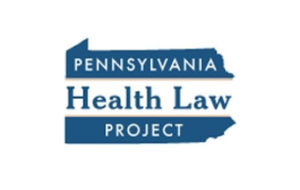HealthChoices Procurement Again Mired in Litigation
For the past six years Pennsylvania has been trying to rebid its HealthChoices Medicaid managed care contracts but every time it does, the losing bidders sue the state and the procurement process grinds to a halt.
 Three times since 2015 the state has issued requests for proposals from managed care companies and all three times at least one of the losing parties has responded to its defeat by filing a lawsuit.
Three times since 2015 the state has issued requests for proposals from managed care companies and all three times at least one of the losing parties has responded to its defeat by filing a lawsuit.
This is happening, many believe, because the state’s Medicaid managed care contracts are so lucrative – a stark contrast with state Medicaid payments to providers, which are generally considered poor.
The matter is now in the state’s Commonwealth Court, and the stakes are great: the contracts are for five years, with a possible option for another three.
The Philadelphia Inquirer has taken a look at the challenges that have prevented Pennsylvania from awarding new HealthChoices Medicaid managed care contracts in the article “Insurers want Pa.’s Medicaid business so badly they keep suing the state.”
 Legislative Update
Legislative Update Department of Human Services
Department of Human Services Department of Drug and Alcohol Programs
Department of Drug and Alcohol Programs State-Wide Mask Mandate
State-Wide Mask Mandate COVID-19: By the Numbers
COVID-19: By the Numbers Department of Drug and Alcohol Programs
Department of Drug and Alcohol Programs Pennsylvania Bulletin
Pennsylvania Bulletin Governor Wolf
Governor Wolf Legislative Update
Legislative Update Around the State
Around the State A new study found that doctors struggle to do business with Medicaid more than they do with other insurers. According to the study, doctors reported that 19 percent of the initial claims they submit for caring for Medicaid patients are not paid in full – more than twice as often as they experience that problem with Medicare and nearly four times more often than they do with commercial insurers. Coupled with Medicaid’s generally lower payments than Medicare and private insurance, many physicians simply choose not to care for Medicaid patients.
A new study found that doctors struggle to do business with Medicaid more than they do with other insurers. According to the study, doctors reported that 19 percent of the initial claims they submit for caring for Medicaid patients are not paid in full – more than twice as often as they experience that problem with Medicare and nearly four times more often than they do with commercial insurers. Coupled with Medicaid’s generally lower payments than Medicare and private insurance, many physicians simply choose not to care for Medicaid patients. Included in this month’s edition are articles about:
Included in this month’s edition are articles about: Other states with major increases in Medicaid enrollment were Missouri (26.5 percent), Illinois (26.3 percent), and Indiana (25.7 percent). The increases appear to have been driven by pandemic-related job losses and the accompanying economic downturn.
Other states with major increases in Medicaid enrollment were Missouri (26.5 percent), Illinois (26.3 percent), and Indiana (25.7 percent). The increases appear to have been driven by pandemic-related job losses and the accompanying economic downturn. Beginning today, SNAP is expanding its regular COVID-19 updates to encompass a broader scope of Pennsylvania state health policy endeavors. As efforts to address COVID-19 prove more effective and the state moves from focusing almost exclusively on the public health emergency back to its usual, much broader array of health policy concerns, we hope this update will be a useful resource on matters of importance to the hospital community. Please feel free to share this newsletter with others in your organization or to send us the email addresses of those you think might be interested and we will send it directly to them.
Beginning today, SNAP is expanding its regular COVID-19 updates to encompass a broader scope of Pennsylvania state health policy endeavors. As efforts to address COVID-19 prove more effective and the state moves from focusing almost exclusively on the public health emergency back to its usual, much broader array of health policy concerns, we hope this update will be a useful resource on matters of importance to the hospital community. Please feel free to share this newsletter with others in your organization or to send us the email addresses of those you think might be interested and we will send it directly to them. Pennsylvania Health Care Cost Containment Council
Pennsylvania Health Care Cost Containment Council